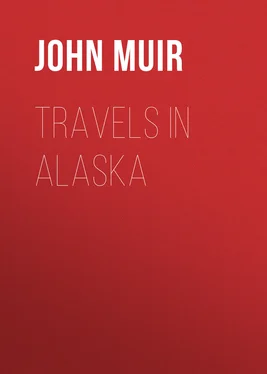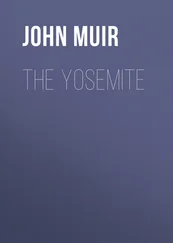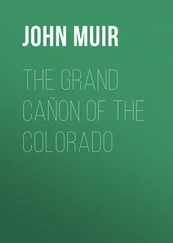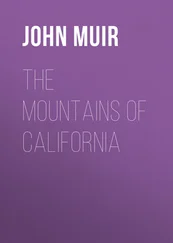John Muir - Travels in Alaska
Здесь есть возможность читать онлайн «John Muir - Travels in Alaska» — ознакомительный отрывок электронной книги совершенно бесплатно, а после прочтения отрывка купить полную версию. В некоторых случаях можно слушать аудио, скачать через торрент в формате fb2 и присутствует краткое содержание. Жанр: Путешествия и география, История, foreign_edu, foreign_antique, foreign_prose, на английском языке. Описание произведения, (предисловие) а так же отзывы посетителей доступны на портале библиотеки ЛибКат.
- Название:Travels in Alaska
- Автор:
- Жанр:
- Год:неизвестен
- ISBN:нет данных
- Рейтинг книги:4 / 5. Голосов: 1
-
Избранное:Добавить в избранное
- Отзывы:
-
Ваша оценка:
- 80
- 1
- 2
- 3
- 4
- 5
Travels in Alaska: краткое содержание, описание и аннотация
Предлагаем к чтению аннотацию, описание, краткое содержание или предисловие (зависит от того, что написал сам автор книги «Travels in Alaska»). Если вы не нашли необходимую информацию о книге — напишите в комментариях, мы постараемся отыскать её.
Travels in Alaska — читать онлайн ознакомительный отрывок
Ниже представлен текст книги, разбитый по страницам. Система сохранения места последней прочитанной страницы, позволяет с удобством читать онлайн бесплатно книгу «Travels in Alaska», без необходимости каждый раз заново искать на чём Вы остановились. Поставьте закладку, и сможете в любой момент перейти на страницу, на которой закончили чтение.
Интервал:
Закладка:
My fire was in all its glory about midnight, and, having made a bark shed to shelter me from the rain and partially dry my clothing, I had nothing to do but look and listen and join the trees in their hymns and prayers.
Neither the great white heart of the fire nor the quivering enthusiastic flames shooting aloft like auroral lances could be seen from the village on account of the trees in front of it and its being back a little way over the brow of the hill; but the light in the clouds made a great show, a portentous sign in the stormy heavens unlike anything ever before seen or heard of in Wrangell. Some wakeful Indians, happening to see it about midnight, in great alarm aroused the Collector of Customs and begged him to go to the missionaries and get them to pray away the frightful omen, and inquired anxiously whether white men had ever seen anything like that sky-fire, which instead of being quenched by the rain was burning brighter and brighter. The Collector said he had heard of such strange fires, and this one he thought might perhaps be what the white man called a “volcano, or an ignis fatuus .” When Mr. Young was called from his bed to pray, he, too, confoundedly astonished and at a loss for any sort of explanation, confessed that he had never seen anything like it in the sky or anywhere else in such cold wet weather, but that it was probably some sort of spontaneous combustion “that the white man called St. Elmo's fire, or Will-of-the-wisp.” These explanations, though not convincingly clear, perhaps served to veil their own astonishment and in some measure to diminish the superstitious fears of the natives; but from what I heard, the few whites who happened to see the strange light wondered about as wildly as the Indians.
I have enjoyed thousands of camp-fires in all sorts of weather and places, warm-hearted, short-flamed, friendly little beauties glowing in the dark on open spots in high Sierra gardens, daisies and lilies circled about them, gazing like enchanted children; and large fires in silver fir forests, with spires of flame towering like the trees about them, and sending up multitudes of starry sparks to enrich the sky; and still greater fires on the mountains in winter, changing camp climate to summer, and making the frosty snow look like beds of white flowers, and oftentimes mingling their swarms of swift-flying sparks with falling snow-crystals when the clouds were in bloom. But this Wrangell camp-fire, my first in Alaska, I shall always remember for its triumphant storm-defying grandeur, and the wondrous beauty of the psalm-singing, lichen-painted trees which it brought to light.
Chapter III
Wrangell Island and Alaska Summers
Wrangell Island is about fourteen miles long, separated from the mainland by a narrow channel or fiord, and trending in the direction of the flow of the ancient ice-sheet. Like all its neighbors, it is densely forested down to the water's edge with trees that never seem to have suffered from thirst or fire or the axe of the lumberman in all their long century lives. Beneath soft, shady clouds, with abundance of rain, they flourish in wonderful strength and beauty to a good old age, while the many warm days, half cloudy, half clear, and the little groups of pure sun-days enable them to ripen their cones and send myriads of seeds flying every autumn to insure the permanence of the forests and feed the multitude of animals.
The Wrangell village was a rough place. No mining hamlet in the placer gulches of California, nor any backwoods village I ever saw, approached it in picturesque, devil-may-care abandon . It was a lawless draggle of wooden huts and houses, built in crooked lines, wrangling around the boggy shore of the island for a mile or so in the general form of the letter S, without the slightest subordination to the points of the compass or to building laws of any kind. Stumps and logs, like precious monuments, adorned its two streets, each stump and log, on account of the moist climate, moss-grown and tufted with grass and bushes, but muddy on the sides below the limit of the bog-line. The ground in general was an oozy, mossy bog on a foundation of jagged rocks, full of concealed pit-holes. These picturesque rock, bog, and stump obstructions, however, were not so very much in the way, for there were no wagons or carriages there. There was not a horse on the island. The domestic animals were represented by chickens, a lonely cow, a few sheep, and hogs of a breed well calculated to deepen and complicate the mud of the streets.
Most of the permanent residents of Wrangell were engaged in trade. Some little trade was carried on in fish and furs, but most of the quickening business of the place was derived from the Cassiar gold-mines, some two hundred and fifty or three hundred miles inland, by way of the Stickeen River and Dease Lake. Two stern-wheel steamers plied on the river between Wrangell and Telegraph Creek at the head of navigation, a hundred and fifty miles from Wrangell, carrying freight and passengers and connecting with pack-trains for the mines. These placer mines, on tributaries of the Mackenzie River, were discovered in the year 1874. About eighteen hundred miners and prospectors were said to have passed through Wrangell that season of 1879, about half of them being Chinamen. Nearly a third of this whole number set out from here in the month of February, traveling on the Stickeen River, which usually remains safely frozen until toward the end of April. The main body of the miners, however, went up on the steamers in May and June. On account of the severe winters they were all compelled to leave the mines the end of September. Perhaps about two thirds of them passed the winter in Portland and Victoria and the towns of Puget Sound. The rest remained here in Wrangell, dozing away the long winter as best they could.
Indians, mostly of the Stickeen tribe, occupied the two ends of the town, the whites, of whom there were about forty or fifty, the middle portion; but there was no determinate line of demarcation, the dwellings of the Indians being mostly as large and solidly built of logs and planks as those of the whites. Some of them were adorned with tall totem poles.
The fort was a quadrangular stockade with a dozen block and frame buildings located upon rising ground just back of the business part of the town. It was built by our Government shortly after the purchase of Alaska, and was abandoned in 1872, reoccupied by the military in 1875, and finally abandoned and sold to private parties in 1877. In the fort and about it there were a few good, clean homes, which shone all the more brightly in their sombre surroundings. The ground occupied by the fort, by being carefully leveled and drained, was dry, though formerly a portion of the general swamp, showing how easily the whole town could have been improved. But in spite of disorder and squalor, shaded with clouds, washed and wiped by rain and sea winds, it was triumphantly salubrious through all the seasons. And though the houses seemed to rest uneasily among the miry rocks and stumps, squirming at all angles as if they had been tossed and twisted by earthquake shocks, and showing but little more relation to one another than may be observed among moraine boulders, Wrangell was a tranquil place. I never heard a noisy brawl in the streets, or a clap of thunder, and the waves seldom spoke much above a whisper along the beach. In summer the rain comes straight down, steamy and tepid. The clouds are usually united, filling the sky, not racing along in threatening ranks suggesting energy of an overbearing destructive kind, but forming a bland, mild, laving bath. The cloudless days are calm, pearl-gray, and brooding in tone, inclining to rest and peace; the islands seem to drowse and float on the glassy water, and in the woods scarce a leaf stirs.
Читать дальшеИнтервал:
Закладка:
Похожие книги на «Travels in Alaska»
Представляем Вашему вниманию похожие книги на «Travels in Alaska» списком для выбора. Мы отобрали схожую по названию и смыслу литературу в надежде предоставить читателям больше вариантов отыскать новые, интересные, ещё непрочитанные произведения.
Обсуждение, отзывы о книге «Travels in Alaska» и просто собственные мнения читателей. Оставьте ваши комментарии, напишите, что Вы думаете о произведении, его смысле или главных героях. Укажите что конкретно понравилось, а что нет, и почему Вы так считаете.












